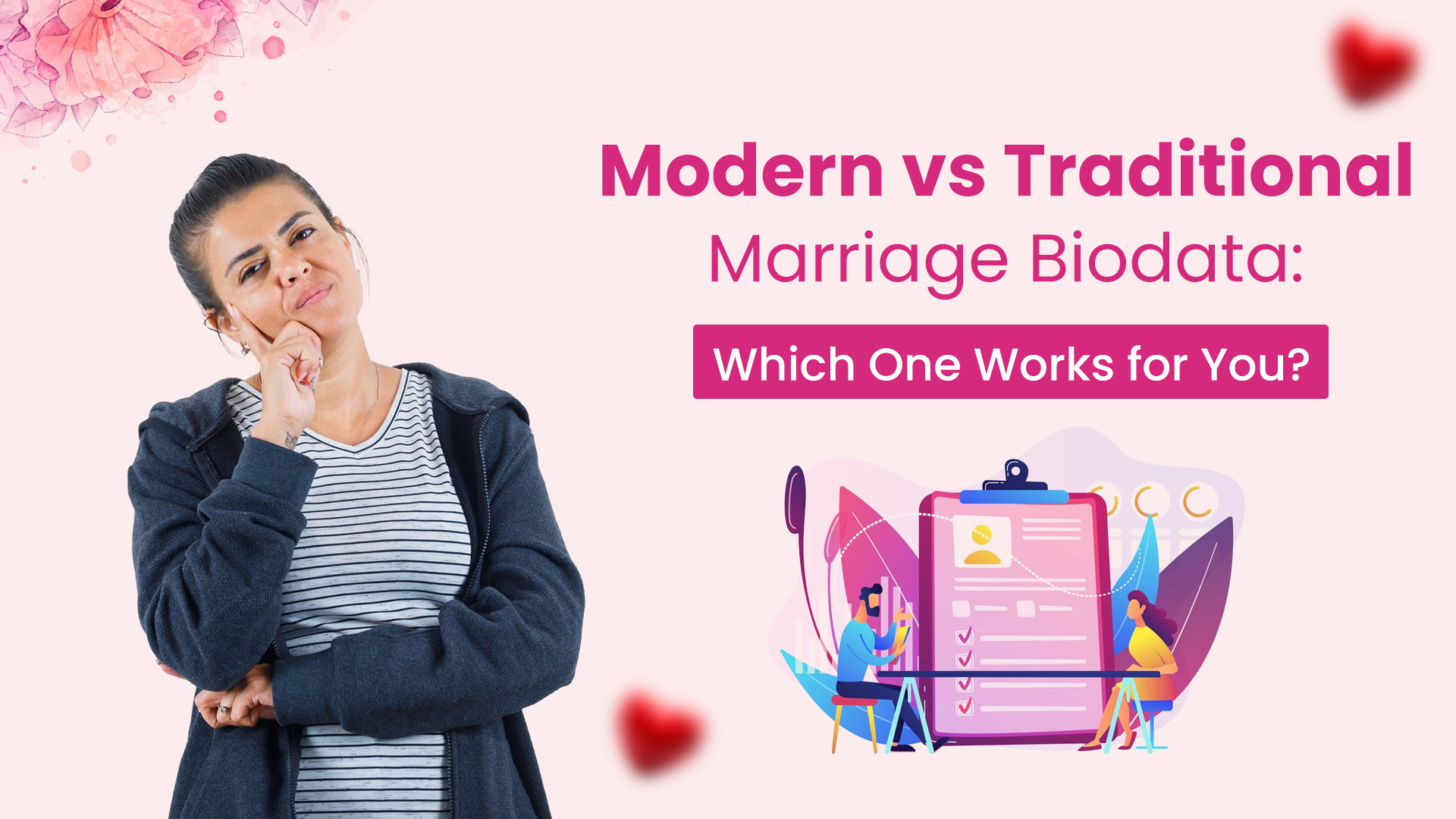- HOME
- SEARCH
- MEMBERSHIP
- Contact
- Register FREE
- Login
A marriage biodata is the beginning of the matchmaking process, providing vital information about a person in a formalized format. Biodata have evolved, adapting to changing social mores, tastes, and expectations. But which one—traditional or modern—is best suited for you? Lets contrast the key differences and walk you through them.

A marriage biodata is a document used in matrimonial site match-making, especially in arranged marriage, to present a persons personal, professional, and family details to a potential mate. It generally contains simple information such as name, age, height, religion, education, profession, family history, and desired partner.
A good-quality marriage biodata increases the likelihood of meeting a potential life mate by offering a clear perception of a persons background and aspirations. It is extensively used across South Asian society for wedding proposals.
A traditional marriage biodata follows a formal, organized pattern with greater stress on culture, family traditions, and background, along with standard personal details. It typically incorporates:
Individuals and families follow conventional matchmaking methods.
Those who prioritize astrological compatibility.
People seeking alliances within the same community or cultural background.
A modern marriage biodata is an individualized, dynamic one, typically a dating profile with a mix of formality and informality. It is less a matter of facts and more a matter of individual personality, lifestyle, and ethics. It may include:
Professionals and millennials are looking for a more casual yet informative approach.
Those who believe in compatibility over traditional matchmaking norms.
Individuals are open to inter-caste or interfaith marriages.
| Features | Traditional Biodata | Modern Biodata |
| Format | Formal, structured | Creative, personalized |
| Focus | Family background, caste, and religion | Personality, interests, lifestyle |
| Astrology Details | Commonly included | Usually omitted or optional |
| Partner Preferences | Based on family, caste, and religion | Based on values, compatibility, and personal choice |
| Presentation | Simple, text-based | Designed with photos and social links |
| Acceptance | Preferred by traditional families | Popular among young professionals |
Choosing between a traditional or modern marriage biodata depends on:
Choosing between a Modern vs. Traditional Marriage Biodata is up to your values, lifestyle, and expectations of your partner. Old-fashioned biodatas highlight family background and cultural issues, while modern biodatas highlight personality, interests, and compatibility. Your choice may be different for every person, but the most important thing is that you present yourself honestly and accurately. Whether you have a penchant for a traditional or modern way, a properly prepared biodata helps you get a compatible partner for a fulfilling and happy marriage.